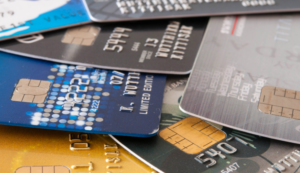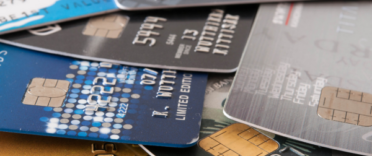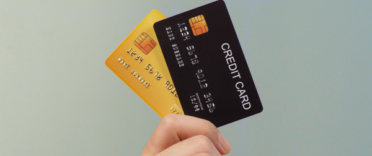
1. Stop applying for credit
While it can be tempting to try your luck with a different credit card, you need to keep in mind that all of these applications leave a hard "footprint" on your credit file. If you are rejected for a series of cards in quick succession, this will be noted on your credit report with the major credit rating agencies, potentially making it more difficult to secure credit in the future. Instead, find out why your application was rejected before doing anything else.
You should also avoid switching to a different form of credit. Applying for a loan instead after your credit card application has been rejected will cause the same issue with your credit report. Find out more about being rejected for a loan in our article 'What to do if you are refused a loan'.
2. Work out why your application has been rejected
It is within your rights to ask the credit card company why they rejected your application and whether it was to do with something on your credit file. While it is not obligated to go into details or pinpoint the exact problem, you have a right to be told which credit reference agency was used. You could also find out if you were unsuccessful because of something on your credit report. If, after speaking to the credit card company, you are still unsure why your application was rejected then run through the following questions. Once you determine the reason for the rejection you will then be in a better position to increase your chances of being accepted by an alternative credit card provider.
Here are the key questions to ask yourself:
| Did you meet the eligibility criteria? | The card you applied for will have specific eligibility criteria, which includes factors such as the minimum income you need to earn each year, whether you are self-employed, as well as your credit score. The official criteria will be included in the product details on the credit card company's website. You will also need to be over the age of 18, be able to provide a UK-based home address and bank account details. Read our article 'Can I get a credit card?' for more information. |
| Do you have impaired credit? | The card provider will assess your overall credit-worthiness based on your past financial behaviour. Depending on the card, some issues, such as late payments, may be accepted. However, bigger infringements, such as defaults, CCJs or bankruptcy will mean it is likely you will have to opt for a specialist lender. For details of cards that are more likely to accept you if you have a less-than-perfect credit score, read our articles 'Compare the best credit cards if you have bad credit card' and 'Credit-builder cards - which is the best credit card if I have poor credit'. |
| Do you have a credit history? | If you haven't previously borrowed money or have recently moved to the UK from abroad, you may not have sufficient credit history to prove to the credit card company that you will be reliable when it comes to making repayments and staying within the specified credit limits. For ideas on the cards that may accept you with little or no credit history, check out our article 'Best first-time credit cards'. |
| Do you have a lot of existing credit arrangements? | The credit card provider will also judge your financial position based on how many loans and other credit cards you already have. If you already have significant levels of debt, it undermines whether you will be able to afford the repayments on a new card and, generally, whether you are a responsible borrower. Read or article 'Will cancelling an unused credit card affect my credit score?' to learn more. |
| Are there mistakes on your credit file? | If there are anomalies on your credit file, such as the wrong address or mistakenly recorded missed payments on previous debts, you could be rejected for a new card. It's a good idea to check your credit reports with one or more of the main credit reference agencies to make sure everything is accurate and challenge any errors. We have information on how in our article 'The best way to check your credit score for free'. |
| Are you linked to someone with poor credit history? | If you have a joint mortgage or credit card with someone who has a poor credit record the lender may take this into consideration when reviewing your application. |
3. Check your credit history
As your credit history plays a vital role in determining whether you are likely to be accepted for a credit card, it pays to know what is included in it and to gauge your credit score. This is slightly more complicated than you may think, with the main credit reference agencies, Equifax, Experian and TransUnion, each potentially recording different information. What's more, each agency has a different way of calculating an overall credit score and it isn't easy to draw comparisons across all three.
It pays to check your report with Equifax, Experian and TransUnion, looking carefully at:
- Your personal details: Are your name and address details correct and up-to-date, particularly if you have recently moved or changed your name.
- Existing credit agreements: Assess the credit agreements listed on your reports, making sure they are accurate and up-to-date. If anything is listed incorrectly, make sure you raise it with both the credit reference agency and the company you had the agreement with. If there is something completely unexpected listed on your report, it could be an indication of fraudulent activity, such as identity theft, so it pays to check regularly.
- Details of black marks: If you have events such as missed payments, defaults, CCJs, IVAs or bankruptcy on your report, scrutinise the details of them. The effects of these things on your credit score diminish over time, so you need to ensure the timing of when it was recorded is accurate to minimise the impact it has.
- Your overall credit score: If you know whether your credit score is excellent, good, average or poor across all three agencies, it will provide a steer on the types of credit cards you can reasonably be expected to be accepted for. Premium cards with perks and benefits will generally require an excellent credit score, while you will typically have to seek out a specialist lender – and pay a higher APR – if you have a poor credit rating. Remember, lenders use the information on your credit report to calculate their own version of your credit score which they then use to determine whether to lend to you or not.
4. Use an eligibility checker
Comparing different credit cards is a key part of getting the best deal for you. Money to the Masses has helped to simplify this process by partnering with Creditec*, an online comparison service. You do not need to trawl through countless different provider websites hunting for the best cashback or lowest fees, as Creditec’s personalised search results will show you the key details you need to know in one place. Your tailored list will also feature the cards that you are more likely to be accepted for, cutting down the chance of any applications you make being rejected. Your search results are built using a soft credit search, so there will be no damage to your credit score. You can start your search by clicking this link*.
For details on which providers offer eligibility checkers, read our article 'How to choose the best credit card for you'.
5. Find ways to improve your credit score
As well as rectifying any mistakes on your credit file, there are a number of ways to increase your credit score. In addition to simply behaving in a sensible and responsible way with any credit agreements you already have – making repayments on time, sticking to the terms of conditions of the agreement, making overpayments if possible – you can take a number of steps to further improve your credit score. These include:
- Making sure you are on the electoral roll
- Closing unwanted or unused credit card accounts
- Reducing – or completely paying off – any overdraft you have on a current account
There is more advice in our article 'How to improve your credit score quickly'.
LOQBOX
LOQBOX* works by customers saving a set amount of money each month for a year. This is structured as an interest-free loan, with the monthly savings payments recorded as loan repayments. The money is locked away for the year, with LOQBOX reporting the monthly payments to the credit reference agencies to demonstrate the customer's ability to service a loan responsibly. At the end of the year-long "loan", you get the money back and, while you won't have earned interest, you will have improved your credit rating.
There is a full review in our article 'LOQBOX Review - Should you use it to improve your credit score?'.
Experian Boost
Credit reference agency Experian has launched Experian Boost as a way for people to potentially improve their Experian credit score by demonstrating "good habits", such as making regular savings or investments or paying for subscription services such as Amazon Prime and Netflix. It uses open banking to regularly assess your spending to identify any opportunity to uplift your credit score. The key thing to note is that using the service does not guarantee that you will get be accepted by a credit card company, or indeed boost your score in their credit scoring process, it simply improves the information provided by Experian and possibly your indicative credit score with Experian.
A full review can be found in our article 'Experian Boost review - can it really help improve your credit score?'.
If a link has an * beside it this means that it is an affiliated link. If you go via the link Money to the Masses may receive a small fee which helps keep Money to the Masses free to use. But as you can clearly see this has in no way influenced this independent and balanced review of the product. The following link can be used if you do not wish to help Money to the Masses - Loqbox





